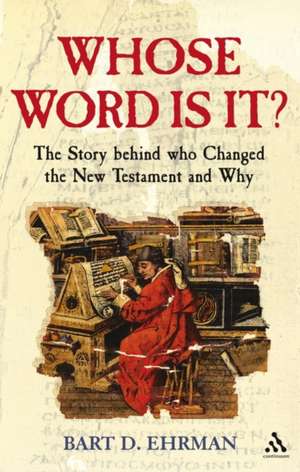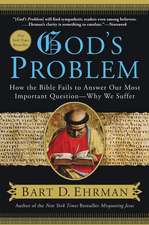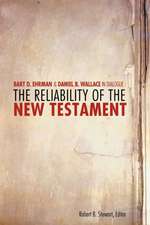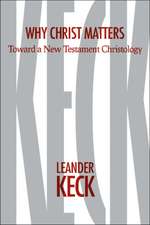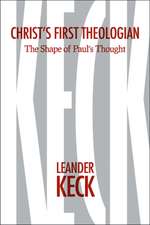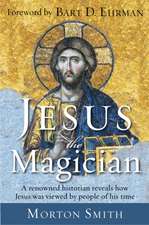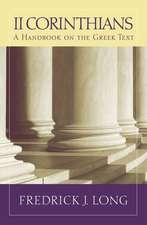Whose Word is it?: The Story Behind Who Changed The New Testament and Why
Autor Bart D. Ehrmanen Limba Engleză Paperback – oct 2008
With the advent of the printing press and the subsequent publishing culture that reproduces exact copies of texts en masse, most people who read the Bible today assume that they are reading the very words that Jesus spoke or St. Paul wrote. And yet, for almost 1,500 years manuscripts were copied by hand by scribes - many of them untrained, especially in the early centuries of Christendom - who were deeply influenced by the theological and political disputes of their day. Mistakes and intentional changes abound in the competing manuscript versions that continue to plague biblical scholars who determine which words, phrases, or stories are the most reliable and, therefore, merit publication in modern Bibles.
Whose Word Is It? is the fascinating history of the words themselves. Biblical scholar Bart Ehrman shows us where and why changes were made in our earliest surviving manuscripts, changes that continue to have a dramatic impact on widely-held beliefs concerning the divinity of Jesus, the Trinity, and the divine origins of the Bible itself. Many books have been written about why some books made it into the New Testament and why others didn't (canonization) or about how the meaning of words change when translated from Aramaic to Greek to English. But this is the first time that a leading biblical scholar reveals for the general reader the many challenging - even disturbing - early variations of our cherished biblical stories and why only certain versions of those stories qualify for publication in the Bibles we read today.
| Toate formatele și edițiile | Preț | Express |
|---|---|---|
| Paperback (1) | 121.07 lei 43-57 zile | |
| Bloomsbury Publishing – oct 2008 | 121.07 lei 43-57 zile | |
| Hardback (1) | 273.93 lei 43-57 zile | |
| Bloomsbury Publishing – 31 dec 2005 | 273.93 lei 43-57 zile |
Preț: 121.07 lei
Preț vechi: 223.82 lei
-46% Nou
23.17€ • 24.25$ • 19.28£
Carte tipărită la comandă
Livrare economică 31 martie-14 aprilie
Specificații
ISBN-10: 1847063144
Pagini: 256
Dimensiuni: 138 x 216 x 19 mm
Greutate: 0.33 kg
Editura: Bloomsbury Publishing
Colecția Continuum
Locul publicării:London, United Kingdom
Caracteristici
Cuprins
Introduction
1. The Beginnings of Christian Scripture
2. The Copyists of the Early Christian Writings
3. Texts of the New Testament: Editions, Manuscripts, and Differences
4. The Quest for Origins: Methods and Discoveries
5. Originals that Matter: Methods and Discoveries
6. Theologically Motivated Alterations of the Text
7. The Social Worlds of the Text
Conclusion: Changing Scripture: Scribes, Authors, and Readers
Recenzii
'This is the first book written which offers a thorough examination of the issue of who changed the New Testament and why they did so... an excellent guide to both the sources and context of the New Testament... highly accessible, yet scholarly at the same time.' Publishing News
'The most interesting feature of the book is the wider theological lesson it draws.' The Furrow: A Journal for the Contemporary Church
'Whose Word Is It? also presents a great deal of information about the history and practice of New Testament textual criticism in an engaging and accessible way.'
'Engaging and fascinating ... [Ehrman's] absorbing story, fresh and lively prose, and seasoned insights into the challenges of recreating the texts of the New Testament ensure that readers might never read the Gospels or Paul's letters the same way again.'
